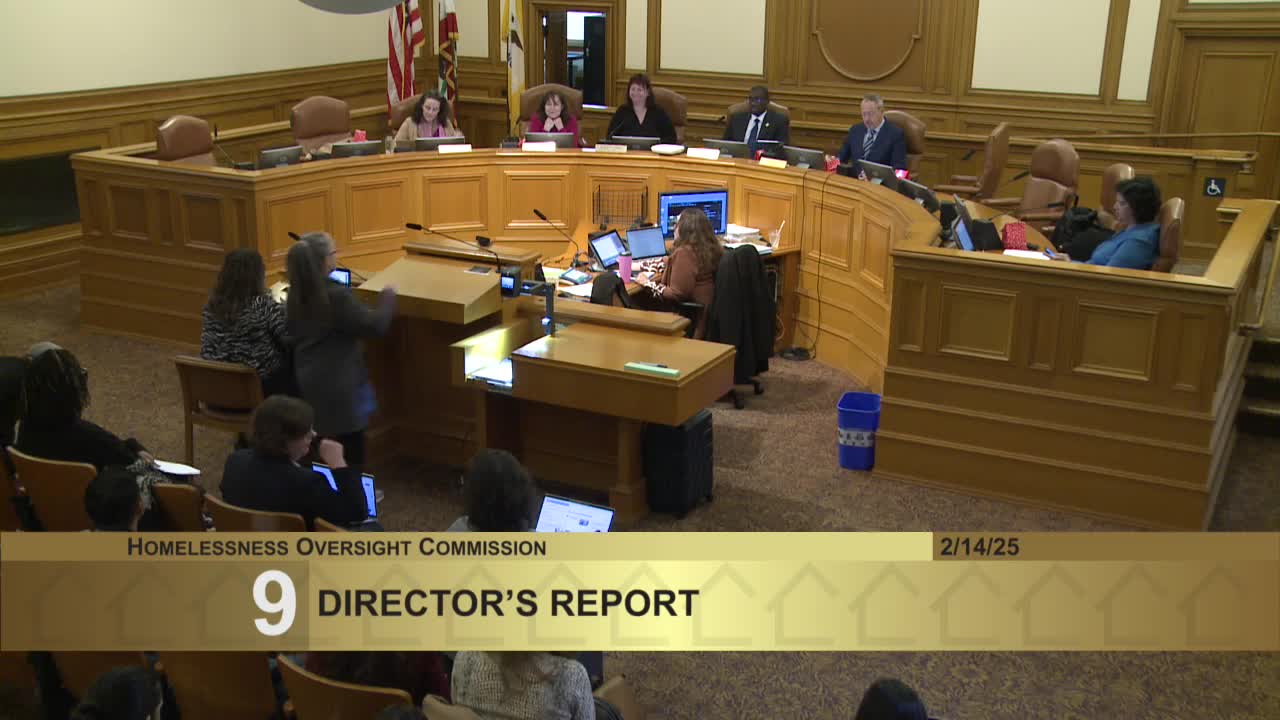Providers and advocates urge restoration of problem-solving funds; HSH says no additional funds identified this fiscal year
Get AI-powered insights, summaries, and transcripts
Subscribe
Summary
Provider witnesses and commissioners pressed HSH to restore problem-solving (rental assistance/deposit) funds, citing strong cost-effectiveness; HSH said no additional funding is identified this fiscal year and future support will depend on the mayoral and Board of Supervisors budget process.
Multiple provider and advocate speakers told the Homelessness Oversight Commission that problem-solving funds (short-term rental assistance, deposits and flexible supports) are an effective homelessness prevention tool and urged the department and Board of Supervisors to restore funding this fiscal year.
Marnie Regan of Larkin Street and youth services said problem solving is "incredibly critical" for transitional age youth and urged fund restoration. Megan Rohrer, co-chair of the local homeless coordinating board and policy director at Compass Family Services, presented provider data: "Based on 128 clients that we helped with problem solving services, spending an average amount of $4,346 to help people be in stable housing, 82% of which stayed in their housing for 12 months after they received this service." Rohrer contrasted that per-family prevention cost with higher downstream costs of system entry.
HSH response: Director Shereen McSpadden acknowledged the benefits of problem solving but said "at this time there's no additional funding identified for problem solving this fiscal year." She said HSH asked providers to operate within their budgets and that funding decisions will be part of the mayoral and Board of Supervisors budget process.
Why it matters: Providers and commissioners framed problem-solving as prevention that reduces inflow to the homelessness response system and can be more cost-effective than emergency shelter and longer-term interventions. Commissioners signaled support for advocacy to the mayor's office and Board of Supervisors and suggested philanthropic partnerships as a potential stopgap.
Next steps: HSH said funding for problem solving will be discussed during the upcoming budget process with the mayor and Board of Supervisors; commissioners and providers indicated plans to press for restoration and to explore other funding sources.
